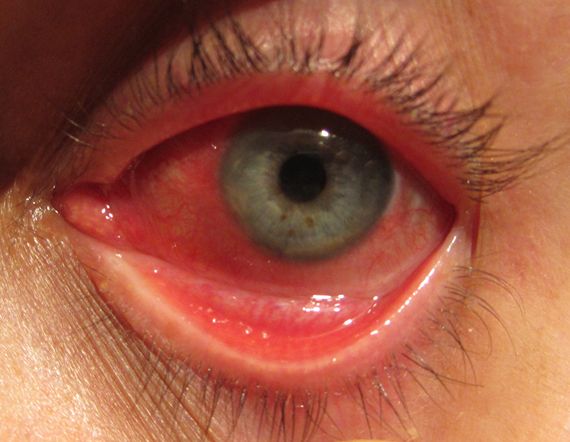
Everything you need to know about acute conjunctivitis: symptoms, causes, and treatments
Irritated or uncomfortable eyes are a very common problem, especially in the extreme weather and poorly ventilated environments that many people are exposed to daily. While sometimes the problem goes away after only a short time, other times the symptoms can linger and might require treatment.
To determine a diagnosis, typically a doctor would take the patient's medical history and other symptoms into account, not just the overall appearance of the eye. This is because conjunctivitis, a sometimes highly infectious eye condition, can easily be mistaken for the red eye which does not usually require any treatment at all.
So, how do you know the difference between simple sore eyes and a more serious problem?
What symptoms should I look out for?
The term “conjunctivitis” refers to the condition of experiencing discomfort or irritation in the eyes from swelling, often accompanied by a watery discharge. Symptoms can be classified as “acute”, based on symptoms that last between 1 to 2 weeks, or “chronic” which refers to cases where symptoms exceed at least 4 weeks.
Conjunctivitis is sometimes colloquially known as 'pink eye' due to the red or pink color that can present in the white of the eye. However, there are a variety of other symptoms that may indicate conjunctivitis too, including:
- Itchy eyes
- A gritty feeling in the eyes
- A burning sensation
- Excessive tearing
- Swollen eyelids
- Increased sensitivity to light
- Eye discharge
What causes conjunctivitis?
Specifically, conjunctivitis is the result of inflammation of the conjunctiva, a thin layer of soft transparent tissue that covers the front of the eye. There can be a number of causes for the inflammation to start, but only some types of conjunctivitis are actually infectious. Infectious cases of conjunctivitis can be caused by:
- Bacteria found on your skin or respiratory system, or in contaminated substances that come into contact with your eye
- Exposure to a highly contagious virus, such as the common cold that weakens the immune system
Chemical conjunctivitis (or irritant conjunctivitis), on the other hand, is not infectious and cannot be passed on to others. These cases are most frequently caused by exposure to foreign chemicals such as perfumed beauty products or chlorinated water which can irritate the conjunctiva.
What is the best way to treat acute conjunctivitis?
Much like the cause, the appropriate treatment for conjunctivitis can vary from case to case. Your doctor may prescribe a course of antibiotic drops for one or two weeks if the infection is bacterial. Similarly, those who suffer from conjunctivitis in response to an allergic reaction can treat the cause with antihistamines.
Irritant conjunctivitis should clear up as soon as the cause has been eliminated, such as harsh chemicals or irritant substances.
Most commonly, however, viral conjunctivitis might take a little longer to clear up as it cannot be treated with antibiotics. Instead, treating the symptoms at home is the best way to address the issue while your immune system works to fight off the infection naturally.
There are a few ways to treat acute conjunctivitis safely and effectively yourself, such as:
- Taking pain killers – Milder cases of conjunctivitis can be uncomfortable but are rarely overwhelmingly painful. A couple of painkillers, taken safely every 4-8 hours should help to relieve unwanted discomfort.
- Using artificial tears – Eye drops (also known as artificial tears) offer a cheap and effective solution to soothe eyes that are affected by conjunctivitis. Hydrating solutions for dry eyes are particularly effective at providing lubrication, cleansing the area of excessive discharge, and relieving the discomfort that many experiences from conjunctivitis. Those seeking to learn more about eye drops can do so at online retailers such as Feel Good Contacts. They stock a variety of eye drops designed to alleviate specific symptoms.
- Washing your eyes regularly – Cleansing your eyes regularly with a gentle cleanser or eye wipes can help to clear excess discharge and soothe the affected area. It also helps to keep the area clean, and free of unwanted bacteria as well as foreign objects to aid healing and reduce the risk of reinfection.
While the infection is still present, wearing contact lenses can also be an additional irritant so it’s best to avoid wearing them until the infection has cleared up completely. Switching to an affordable pair of spectacles is recommended for those who usually opt for a continuous contact lens option like monthlies.
How can acute conjunctivitis be avoided?
Acute conjunctivitis can result from a variety of factors, such as infection or an allergy which are largely unavoidable. However, if an infection is something you are particularly keen to stay clear of, there are certain measures and practices that you can put in place to significantly reduce the risk of exposure. These include:
- Avoid touching your eyes
- Wash your hands often and thoroughly with warm soapy water
- Don't share makeup or face creams
- Make sure your towels and pillowcases are clean and avoid sharing them
- Make sure to remove your contact lenses before swimming to avoid the risk of infection or irritation

Comments (0)